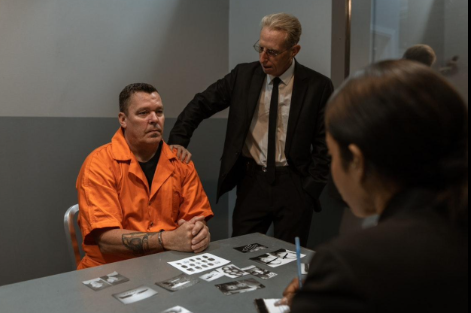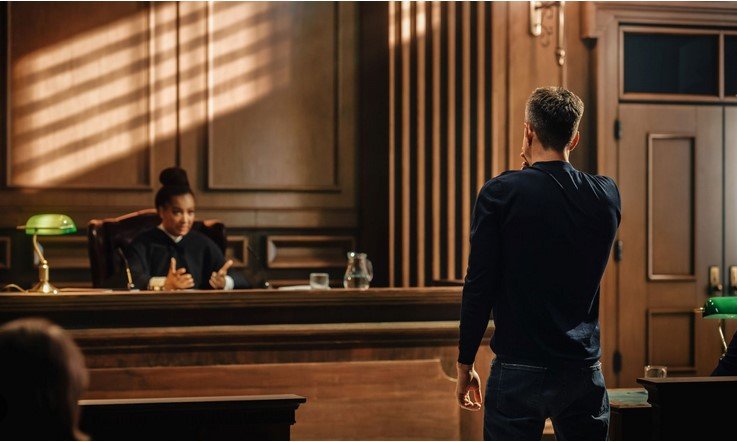Criminal defense law occupies a unique and often misunderstood space in the legal system. While the primary goal is to ensure that every individual receives a fair trial and legal representation, the morality of defending individuals accused of serious crimes is a topic of intense debate. For many, the idea of defending someone who may have committed heinous acts seems to contradict ethical principles. However, the role of a criminal defense attorney is crucial in upholding justice and the integrity of the legal system.

The Role of a Criminal Defense Attorney
At the heart of criminal defense is the belief that every person, regardless of the accusations against them, is entitled to a fair trial. This principle is enshrined in the legal systems of many democratic countries and serves as a foundation for justice. A criminal defense attorney’s role is to ensure that the accused receives a vigorous defense, challenging the prosecution’s case, and advocating for their client’s rights.
In many cases, this means defending individuals who are guilty of the crimes they are accused of. However, the purpose is not to condone criminal behavior but to ensure that the legal process is followed correctly. A fair trial is a cornerstone of justice, and without a competent defense, the legal system risks becoming arbitrary and biased. The morality of criminal defense is deeply intertwined with the principle that it is better for guilty individuals to go free than for an innocent person to be wrongfully convicted.
Moral Dilemmas Faced by Defense Attorneys
Criminal defense attorneys often face significant moral dilemmas. They must reconcile their duty to provide the best possible defense for their client with the ethical considerations of defending someone who may have committed a serious crime. This internal conflict is a well-known challenge within the profession, and different attorneys approach it in various ways.
Some lawyers may compartmentalize their work, separating their personal feelings from their professional obligations. Others may choose to focus on the broader implications of their work, emphasizing the importance of the legal system functioning correctly. Despite these strategies, the moral complexity of criminal defense remains, as attorneys must balance their duty to their client with the broader interests of society.
The Presumption of Innocence
A key aspect of criminal defense law is the presumption of innocence. This legal principle asserts that an individual is considered innocent until proven guilty. It is the prosecution’s burden to prove the accused’s guilt beyond a reasonable doubt. The presumption of innocence is a fundamental right that protects individuals from being wrongfully convicted based on insufficient or flawed evidence.
Defense attorneys play a critical role in ensuring that this principle is upheld. They challenge the prosecution’s evidence, cross-examine witnesses, and present alternative narratives that may cast doubt on the accused’s guilt. By doing so, they help to ensure that the legal system remains fair and just, and that convictions are based on solid evidence rather than assumptions or biases.
Ethical Boundaries in Criminal Defense
While criminal defense attorneys are committed to defending their clients, they are also bound by ethical guidelines. These guidelines prevent attorneys from engaging in illegal or unethical behavior in the course of defending their clients. For example, a defense attorney cannot knowingly present false evidence or allow their client to perjure themselves on the stand.
The ethical boundaries in criminal defense are designed to maintain the integrity of the legal process. Attorneys must navigate these boundaries carefully, ensuring that they provide a robust defense for their client while adhering to the rules and standards of the profession. This balance is crucial in maintaining public trust in the legal system and ensuring that justice is served.
Choosing the Right Platforms for Fair and Secure Gaming
Security and reliability are crucial whether you’re dealing with legal matters or online gaming. Finding a trusted aussie online casino ensures fair play, data protection, and secure transactions. Just as our firm prioritizes ethical legal representation, choosing reputable online platforms ensures a safe and enjoyable gaming experience.
The Public Perception of Criminal Defense
Public perception of criminal defense attorneys is often shaped by high-profile cases where individuals accused of serious crimes receive a vigorous defense. In such cases, defense attorneys may be viewed negatively, with some seeing them as enablers of criminal behavior. However, this perception overlooks the essential role that defense attorneys play in the justice system.
By ensuring that all individuals receive a fair trial, defense attorneys contribute to the rule of law. They protect against miscarriages of justice. Without a competent defense, the legal system would be vulnerable to abuses of power. Particularly the wrongful conviction of innocent individuals. The public’s understanding of criminal defense must therefore include an appreciation of the broader principles that underpin the legal system.
Conclusion
The morality of criminal defense is a complex and multifaceted issue. While defending individuals accused of serious crimes can raise ethical questions, the role of a criminal defense attorney is essential. Particularly in upholding the principles of justice and the rule of law. By ensuring that every person receives a fair trial, defense attorneys protect the integrity of the legal system. They help to maintain public trust in the process. The challenges, as well as the dilemmas faced by criminal defense attorneys are a reflection of the broader tensions. Those between individual rights and societal interests, and their work remains a critical component of a just and fair society.










